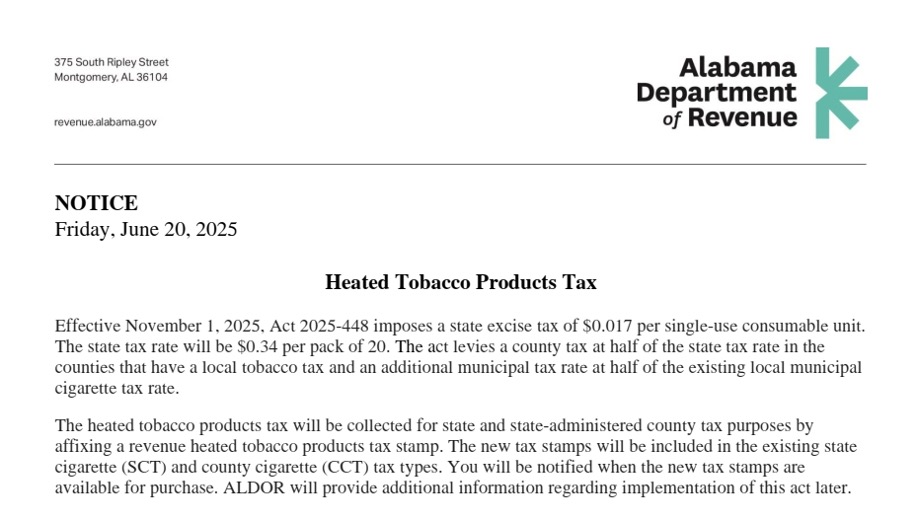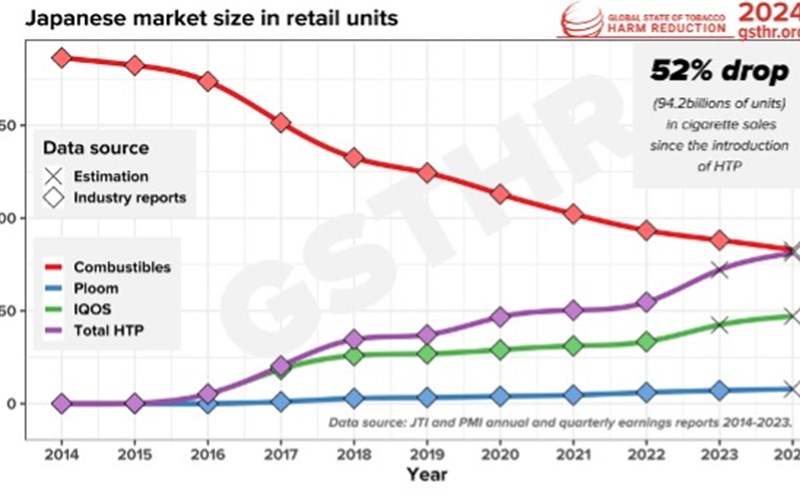Some US states adjust tax policies for harm-reducing products
Many states in the southern US are implementing new tax policies to adjust the application for non-smoked tobacco products, which are expected to replace traditional cigarettes. This move aims to minimize negative impacts on public health and save on medical costs.
In Alabama, the governor of the state has signed a law regulating lower taxes on non-smoking products, specifically heated tobacco products (TLNN), citing that the product can significantly limit the generation of toxic substances compared to traditional cigarettes. Accordingly, the new tax table regulations apply incentives for TLNN products, down to 1.7 cents for each cigarette unit. Although maintaining the view that electronic cigarettes still have a health impact compared to non-smoking, this policy can significantly reduce the production of toxic chemicals compared to continuing to smoke. This regulation takes effect from November 1, 2025.

The state of Mississippi has also approved a similar policy in 2024 with a tax rate of 1.25 cents per electronic cigarette, much lower than traditional cigarettes. The move is to encourage smokers to switch to less harmful options, especially as the state faces many health challenges such as air pollution and severe lack of clean water.
In addition to the two states mentioned above, similar tax adjustment proposals are also being considered for approval in many other states such as Iowa, Florida, Oklahoma, Tennessee... According to experts, designing appropriate tax policies not only contributes to changing consumer behavior but can also create a positive impact on public health.
US federal government and other countries continue to support harm reduction products
At the federal level, the US administration requires the US Food and Drug Administration (FDA) to simplify the management process to quickly establish a legal framework for all tobacco products on the market.
Under the new guidelines, the US administration will restructure FDA operations, prioritizing research on nicotine alternatives and their role in the strategy to mitigate the harmful effects of cigarettes.
The federal government said the changes are aimed at protecting the rights of alternative manufacturers and supporting millions of consumers who are already using the products.
Recently, according to international media, US Secretary of Health Robert F. Kennedy Jr. also commented that smoke-free alternatives are really superior to traditional cigarettes. At the same time, he also said that the health burden caused by cigarettes each year is up to 640 billion USD, so gradually eliminating traditional tobacco products is a goal that many health agencies in the United States are aiming for.
Not only in the US, the New Zealand government has recently decided to extend the 50% tax reduction for TLNN until July 2027, instead of ending it in 2025 as originally planned. This move aims to create more time for a comprehensive assessment of the harm reduction effects of non-smoked products. According to data from the New Zealand Ministry of Health, the daily smoking rate in this country has decreased to 6.9% in 2024.

In Asia, the Philippines and Indonesia are the leading countries in applying preferential tax policies for the FDI, with the expectation of achieving positive changes similar to Japan - where the rate of tobacco use has decreased sharply after the FDI became widely popular.
Practice from many countries shows that effective tobacco control requires a separate strategy for each smoker, including those who intend to quit and those who do not want to quit. Supporting to reduce the harmful effects of people who cannot quit smoking before completely quitting is increasingly being proven effective in many countries.










